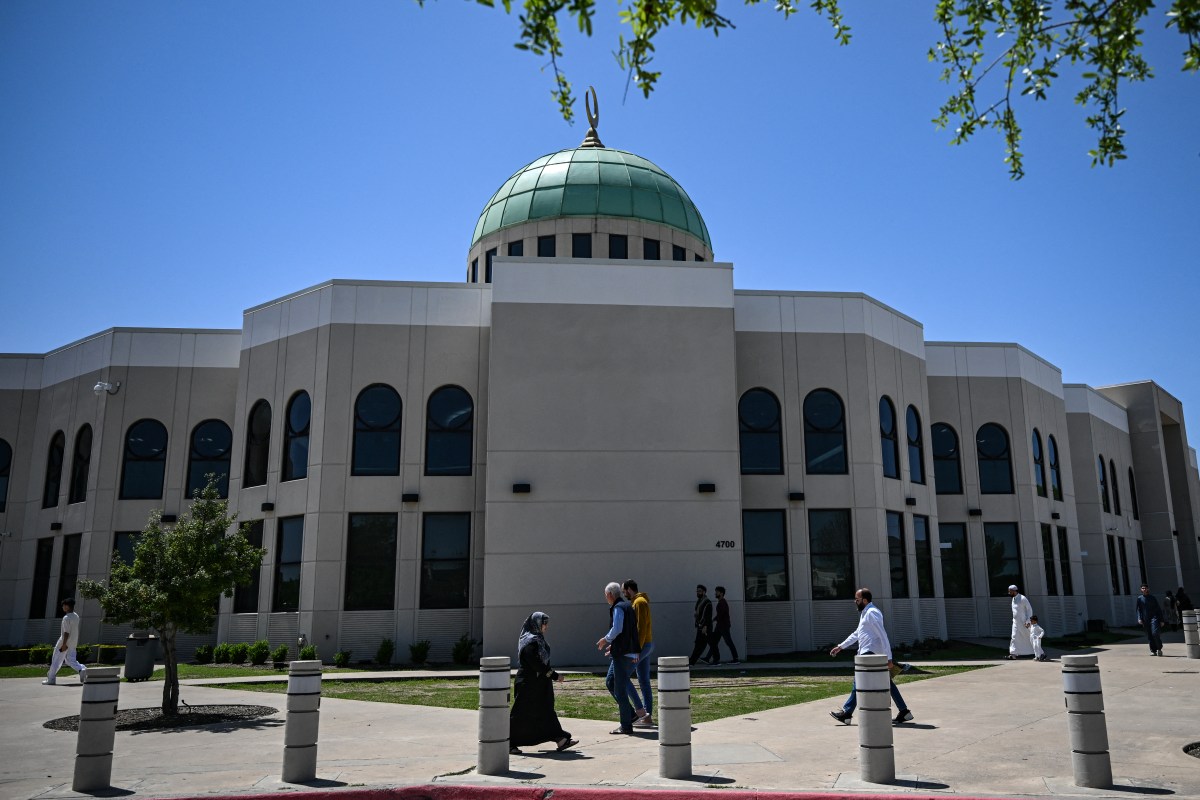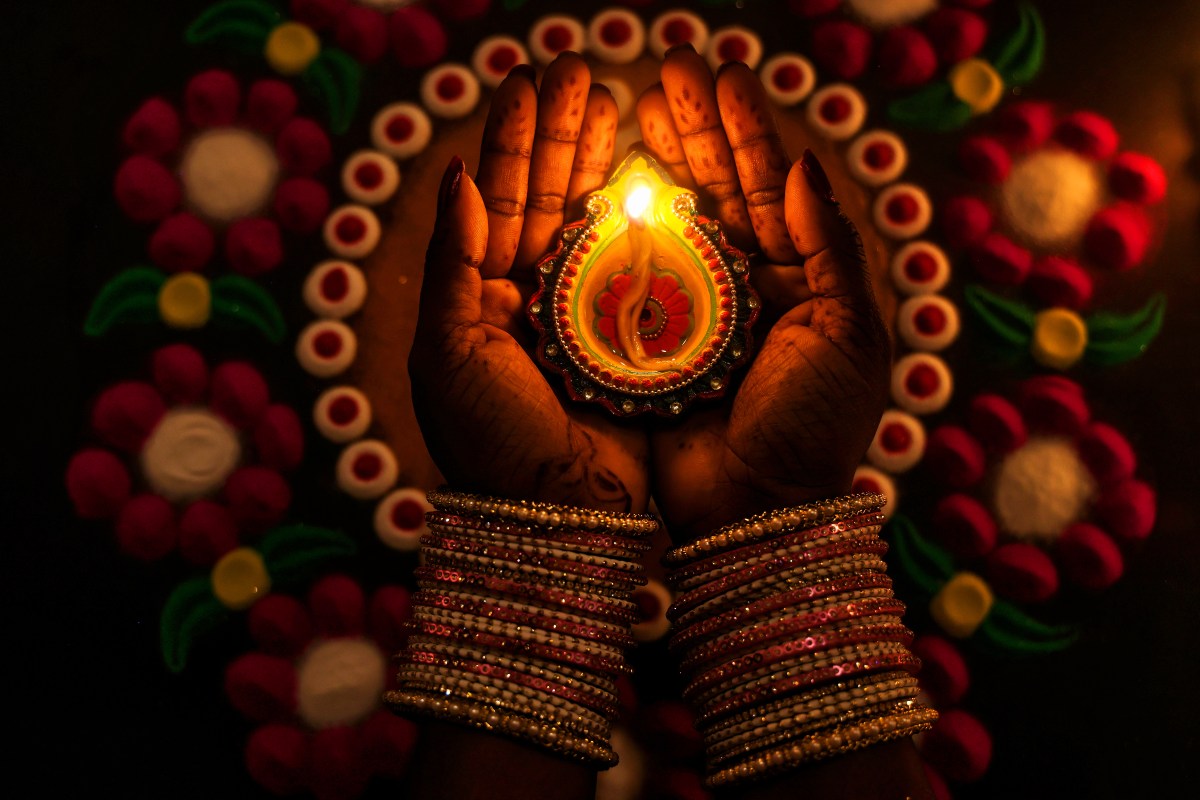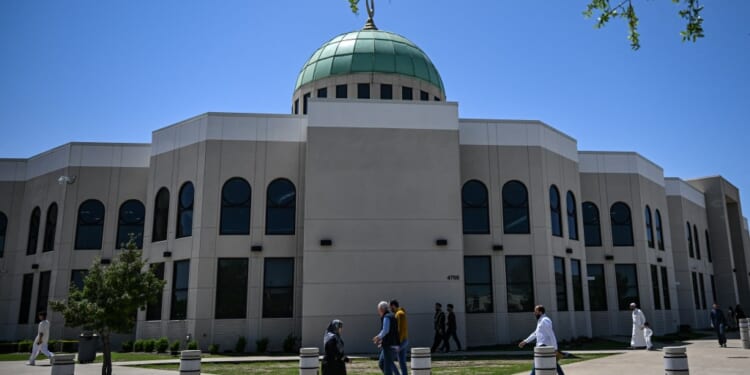You’re reading Dispatch Faith, our weekly newsletter exploring the biggest stories in religion and faith. Looking for more ways to support our work? Become a Dispatch member today.
Few writers calling for reform in the Islamic world have as much credibility as Dispatch Contributing Writer Mustafa Akyol. Originally from Turkey, he has debated hardline Muslim clerics, has given talks calling for Muslim leaders to adopt lessons from the West’s liberal democracies, and even was arrested for a short time by Malaysia’s “religion police.”
So it’s worth listening to him when he writes—as he does in Dispatch Faith today—that calls in the U.S. to restrict American Muslims’ ability to practice their faith (such as recent episodes in Texas) are misguided and overly fearful. And that not only do they betray the robust religious liberty protections enshrined in the Constitution, they may also backfire by pushing more Muslims toward extremist postures.
Mustafa Akyol: No ‘Sharia Law’ Is Coming to Texas

“To be clear, Sharia law is not allowed in Texas. Nor are Sharia cities.” Thus wrote Texas Gov. Greg Abbott on X on February 24, in reference to a controversy raised over EPIC City, a residential development project in Texas, some 40 minutes northeast of downtown Dallas. The project was announced in 2024 as a plan to build a “thriving Muslim community,” with more than 1,000 residential units, a mosque, a K-12 faith-based school, a community college, and many shops. The developers repeatedly said they have no intention of implementing any Sharia law, and that their “Muslim neighborhood” would be “well integrated” into the wider community.
But that did not calm the worries among some conservative Americans, who seemed to see potential Taliban in any spot that is overtly Muslim.
Soon, the Department of Justice inspected EPIC City, but found no issues and closed its investigation in June. Still, the controversy has continued. Last month, Abbott signed a bill “Banning Sharia Compounds In Texas,” as his office put it. Two weeks later, two Republicans in the U.S. House of Representatives introduced the “No Sharia Act” to ensure “Islamic law is never the law of the land in the United States” and to protect “American values of freedom.”
As a Muslim who has long admired America’s freedoms, I fully agree that they must be carefully preserved. I also agree that Sharia should never be “the law of the land”—not only in America, but anywhere else, including the Muslim world. But I worry that this new wave of alarmism about “Sharia law” may threaten liberty by targeting innocent communities and legitimate Muslim practices—as seen in the obstruction of EPIC City, the calls to deport those who “practice Sharia Law,” or the suggestions to exclude Islam from the First Amendment. Such actions can also, inadvertently, help the radical Islamists who preach to Muslims that since the West will never be fair to them, they should see it as their sworn enemy.
This is not because “Sharia law,” as enforced in certain parts of the Islamic world today—from Afghanistan to Iran, from Saudi Arabia to Nigeria—is not a real concern. It is, in fact, a huge concern. Terrible things have been justified in the name of Sharia: violations of religious freedom, oppression of women and non-Muslim minorities, child marriages, “morality policing,” and even acts of terrorism. That is why reformist Muslims, including myself, have been arguing that we need to reform Sharia—now. (I’ve also gotten in trouble for making such arguments, such as when I was arrested by Malaysia’s “religion police” for merely criticizing apostasy laws.)
However, there are also some important facts and nuances about Sharia, the legal tradition of Islam, that seem entirely missing from the heated rhetoric of the day.
First, much of Sharia is not really “law” in the Western sense—legislation to be enforced by a state. It is rather about how Muslims pray, dress, eat, or fast. It also includes rules of marriage, divorce, and raising children, as well as business contracts and loans. None of these mandates violate human rights, as long as they are observed voluntarily, and they don’t have to define the laws of any state.
A helpful analogy here is the Halakha, the Jewish religious law that is freely practiced by Orthodox Jews, which has many similarities to Sharia. In fact, as observed by the late Marshall J. Breger, former vice president of the Jewish Policy Center, “the vast majority of Muslims, especially those living in the West, view Sharia no differently from the way Jews view the Halachic system: As an overarching guide to ordering one’s life.” That parallel between Judaism and Islam also explains why European Jews and Muslims have joined forces to defend their common practices—male circumcision and ritual animal slaughter—against those who want to ban them.
For the same reason, the much-discussed “Sharia courts” in the United Kingdom—which are in fact arbitration councils operating under British law—follow a longstanding Jewish precedent: the Beth Din, which has long enabled the Jewish community to resolve family and civil matters according to religious rules and on a voluntary basis.
But Sharia is controversial today while Halakha is not, and there is a reason for it: There has been no “Halakhic state” on earth for about two millennia, and the penal code of the Halakha—with punishments like stoning for adultery—has long turned obsolete. Sharia’s penal code, however, is still enforced in a handful of self-defined “Islamic” states, with harsh corporal punishments—amputations, lashes, and stoning—for some indisputable crimes (like theft or murder), but also for religious offenses (like apostasy, blasphemy, or impiety) that should be permitted in a free society.
That is also why, in my own argument for reforming Sharia, I suggest that it “should not be enforced by state power, but practised by faith, like the Jewish Halakha.” That also means there is nothing wrong with Sharia when it refers to harmless religious practices that are followed voluntarily.
Second, not every other Muslim is a walking Sharia enforcer, as some alarmists seem to think. Most Muslims may broadly respect Sharia as some divine guidance for piety and justice (often for only Muslims themselves), but many also seem happy to live in secular or moderately Islamic states, raising their families and minding their own business.
That is why there is a specific term for those eager to enforce the Sharia: “Islamists,” who range widely from armed militants to more pragmatic politicians and ideologues. Yet even in the Muslim-majority world, their advances remain constrained: More than two dozen Muslim states, from Burkina Faso to Kazakhstan, are secular, while many others, particularly in the Arab world, such as Jordan, Lebanon, or Algeria, apply Sharia only to family matters.
Still, even if Islamists were to gain the upper hand, they would probably begin by enforcing Sharia in secular states that are roughly 90 percent Muslim, such as Indonesia, Uzbekistan, or Turkey. (Yes, despite President Recep Tayyip Erdoğan’s two-decade stretch of populist governance with Islamist tones, Turkey’s laws are still secular, as there is no big public demand for Sharia legislation, even among religious conservatives.) So, while the Muslim-majority world itself is considerably secular, fearing Sharia rule in America—whose tiny Muslim minority makes up only 1 percent—is highly far-fetched.
Third, Sharia itself, even in conservative interpretations, helps integrate Muslims into the secular West with its own religious rationale: The Quran commends Muslims, “O believers, fulfill your contracts” (5:1), and modern democratic states are built on a contractual relationship between governments and citizens. With this argument, popular sources of fiqh (jurisprudence, the interpretation of Sharia), such as the Darul Iftaa of the U.K., tell Muslims that they must be “Obeying the Law of the Land in the West.” Similarly, the Fiqh Council of North America, in an article titled, “Being Faithful Muslims and Loyal Americans,” says:
Islamic teachings require respect of the laws of the land where Muslims live as minorities, including the Constitution and the Bill of Rights, so long as there is no conflict with Muslims’ obligation for obedience to God.
This does not mean Western Muslims give up “obedience to God” by wearing headscarves and cooking halal food, by building communities and mosques, by preaching their religion and celebrating its festivals—which are all parts of the Sharia. But there is no problem in any of that, as long as they are not enforced on anyone. It only adds one more color to a free America that is already rich with diverse religious communities, each with its own distinct traditions.
Fourth, Muslim minorities are not just residing in the West, they are also being positively influenced by it by becoming “socially liberal.” That is especially true in the United States, where Muslims are well integrated thanks to religious pluralism and dynamic capitalism.
This may not be evident to those who have only seen certain firebrands among American Muslims—with upsettingly pro-Hamas, pro-Hezbollah, and anti-American views—that have recently captured media attention. But cherry-picking the most unsavory figures in a large community is never helpful, and one should always try to see the big picture, which can be revealed in objective polls. One was a 2017 Pew Research Center Survey on U.S. Muslims showing that 9 in 10 were “proud to be American”; 80 percent were “concerned about extremism in the name of Islam”; half believed “traditional understandings of Islam need to be reinterpreted”; and more than half said “homosexuality should be accepted by society.” A 2011 poll by Gallup had also found “Muslim Americans more likely than other faith groups to reject attacks on civilians.”
In fact, one of the advocates of the EPIC City project in Texas, Yasir Qadhi, a leading Muslim cleric in North America, reflects that positive change. He comes from the Salafi movement, the strictest brand of Sunni Islam, but he has moved toward “a more moderate and pragmatic stance”—only to be condemned by hardliners for his “reform agenda” and “colonized” mind. In 2023, he gave a significant talk to American Muslims, saying that they have a blessing that most other Muslims lack: “A constitution that protects our freedoms.” “We thank Allah,” he added, “for that freedom.” (A year later, in an Acton Institute debate titled, “Islam and the state: Can they be separate?” I welcomed those comments by Qadhi, only to add, “I would advocate those freedoms in the Muslim lands, too.” He did not go that far, but agreed with me that “a coercive theological state” is bad for both society and religion.)
Here is the real question: Should American Muslims continue to enjoy the blessings of the United States Constitution, and keep thanking Allah for the freedom they have found in this beautiful country? Or should they feel excluded, scrutinized, and discriminated?
I hope and believe the answers will always be “yes” and “no.” For that is essential to the future of freedom—in America, and across the world, including the Muslim world. Throughout the latter, I have long argued that Muslims do not need “Islamic states,” but rather free states that allow everyone to live by their conscience. And I have often pointed to the United States and its great tradition of religious liberty as an ideal model.
That model should keep shining, and its mantle of protection should continue to cover “the Jew and the Gentile, the Christian and Mahometan, the Hindoo, and Infidel of every denomination,” as Thomas Jefferson envisioned. It is a vision that has been tested before—when Catholics and the Latter-day Saints were once too novel and suspect for most Americans. The advocates of liberty won those tests. The ongoing test with Muslims should be won for liberty as well.
That also will be a victory over the truly anti-American forces in the Muslim world—from the Iranian regime to the Sunni jihadists—who have long preached to Muslim masses that liberty is a lie, and its greatest champion, the United States, is a deceiver. Proving them wrong will really help us all—from Christian to Muslim, from Jew to Gentile, from Texas to Mecca.
More Sunday Reads
- In the mid-20th century, brothers Ezra and Khedouri Lawee were part of a thriving Jewish community in Baghdad, though one subjected to persecution in the preceding decades. After the creation of the state of Israel in 1948, they—like many other Jewish families—fled the country in the face of worsening persecution. Their palatial home fell into the hands of the French government, which today uses it for an embassy. But now the brothers’ descendants are suing the French government, seeking remuneration for decades of use. Alexander Kippen wrote about the issue for Tablet: “Conditions for Iraqi Jews became especially acute after the creation of Israel, during the period known as ‘denationalization’ in 1950-51. New laws stripping Iraqi Jews of their nationality and their property accompanied a bombing campaign aimed at local synagogues and Jewish businesses. Ezra and Khedouri Lawee were among the thousands of Jews who fled Iraq during this time. The Jewish Iraqi brothers had built and owned a beautiful house—nicknamed Beit Lawee, or House of Lawee—which was eventually seized by Saddam Hussein after he came to power in 1970, two decades after they had left the country. Records show Khedouri traveled to London and New York before settling in Montreal. His brother Ezra also settled in Montreal, after stopping along the way in Israel, Egypt, and New York. Responding to lawyers representing the Lawee descendants, the French Ministry for Europe and Foreign Affairs’ defense brief argues that by fleeing Iraq the Lawee brothers technically lost ownership of their house under a set of discriminatory laws from 1951 whose very aim was to strip Iraqi Jews of their property.”
- For the Wall Street Journal, journalist Mindy Belz writes on this month’s crackdown on a network of house churches in China—the largest such crackdown since 2018, she writes—and the arrest of Zion Church pastor Ezra Jin Mingri. “In one sense, Zion already should have ceased to exist. The church has operated as an open challenge to the party since Mr. Jin created it in Beijing in 2007. Fewer than 20 members grew to 1,500 within a decade. When authorities asked Mr. Jin to install surveillance cameras in 2018, he refused. The government shut down the church, confiscating its property. … The first-generation underground churches of a half-century ago met in houses and undisclosed alleyway rooms, gathering by word of mouth. Second-generation meetings were more public, convening in parks or commercial spaces, taking advantage of a China that was rapidly urbanizing, economically booming, and opening to outsiders. Mr. Jin envisioned an emerging model he called ‘Urban Church 3.0,’ using secure online training and resources to support local in-person gatherings. It is a plan that admits the realities of life in a police state. The Communist Party has intensified persecution of Christians, Muslims, Tibetan Buddhists and Falun Gong practitioners. To worship thus requires creativity. Zion flourished online. ‘The internet was a genuine worship space where the Holy Spirit was present,’ Mr. Jin said in a 2024 lecture.”
Religion in an Image

















